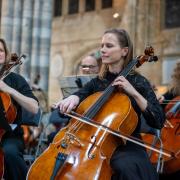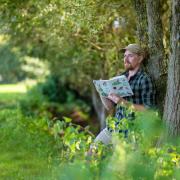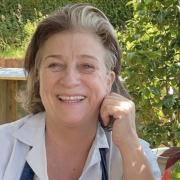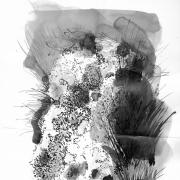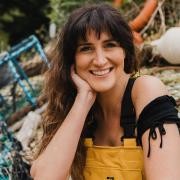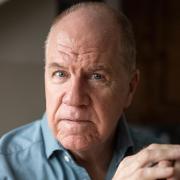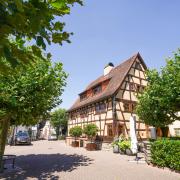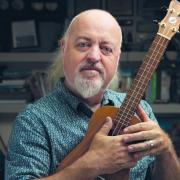Businessman Steve Littley sold his transport firm and left Surrey for the perfect, quiet life in Devon. A decade and £3.5million on, the building work at Cranberries Hideaway has finally finished. Kate Williams visits the former dairy farm and discovers how the journey evolved
When Steve Littley decided to move to Devon for ‘a quiet life’, little did he know he would end up creating a hotel complex, spa and restaurant with more stress than he had ever known.
Starting out as a market trader selling ladies’ underwear in the South East, Steve built up his transport company and sold it for a good profit, waving goodbye to the pressures of Surrey life in search of some peace in the West Country.
“I fell in love with Devon really. We used to come to Beer Head Caravan Park. I was 36 and had achieved quite a lot but I couldn’t find a house. Then Hills Farm at Kilmington became available,” he recalls.It was the view of the rolling hills from the former dairy farm in the East Devon village which drew Steve in initially.
He explains: “I was looking for a house and a small business - maybe a couple of holiday cottages, little bit of income, something simple.
“Not a whole farm, then to build a six-bedroom barn that then became 32 rooms, a spa, a restaurant, a wedding venue and corporate venue!
“When I bought the farm, in my mind, my plan was to build an eco-house. It was the view, it was the area; it was a project which could have gone one of a million ways.”
Hills Farm intrigued Steve with its 18th century stone barns and glorious valley outlook. Steve was sold on the location but he was drawn to the idea of bringing those tired and broken buildings back to their former glory rather than letting them go to eventual ruin.
From his eco-house and one barn converted to holiday accommodation, Steve’s project slowly evolved into Cranberries Hideaway - seven self-catering barns, nine guest bedrooms, an Elemis spa, conference centre, wedding venue, restaurant and gin bar. And, if that was not enough, he has recently acquired the lease for the village pub, The Old Inn, as well.
With the help of a grant from Defra’s Rural Development Programme for England and The European Agricultural Fund for Rural Development, Steve’s passion for eco living, green business and original buildings has become a reality.
He says: “Devon is all about farming and tourism. We took a farm which, sadly, wasn’t doing well, and we’ve turned it into a holiday complex and, on top of all that, it’s all Grade II listed so we’ve regenerated everything back to how it would have been in the 1700s.”
What has ended up as a grand scheme is a far cry from the quiet country life Steve and his family were in search of. It has taken ten years, £3.5million and continual visits from Defra, East Devon District Council’s listings team as well as fortnightly visits from his bank manager during building.
Steve admits: “It’s the most stressful thing I’ve ever done. The £3.5million gives me nightmares. It has taken it’s toll. It’s a rollercoaster. Every day is different.”
Despite previously running his transport and logistics company with a 700-strong staff and offices throughout the UK and Europe, Steve still maintains this project is the hardest thing he has ever done.
He explains: “This is completely out of my comfort zone. But, you adapt - from corporate to the public - in theory it’s like all businesses, the end goal is the same, you’ve got to keep everyone happy.
“And, in Devon, the competition is different because everyone helps each other. If a hotel down the road is full, they send visitors to us. Coming from cut-throat Surrey, it doesn’t happen like that. Everyone helps everyone else out here, it has a real community-type spirit.”
Having an excellent team on board has ensured the project’s success.
“It’s a ‘family’ business because we are all colleagues, we all work together and are equal. There’s no hierarchy, we all muck in – if I need to clean the toilets, I do.”
With his head in his hands, Steve laughs about the stresses, strains and enormity of the Cranberries project but he is relieved the build is finally finished.
“It takes up 99.9 per cent of my time! Everything is about this. It’s 24-hours a day. I enjoy it. There are more highs than there are lows and I think it’s something to be proud of, for my children. And it’s a working business and makes money. But we need to be busier, which I hope will come.
“I think what we have here is unique. The sense of satisfaction is there. Recently, I actually took a moment and had a look at what we’ve done and I’m very pleased with what we’ve achieved.
“Now is the time to sit back, reflect and enjoy what we’ve got.”
THE WEDDING VENUE STORY
The top barn was first built as a games room. When one of the villagers’ daughters was getting married he asked if they could use the barn as a wedding venue because of the amazing view.
Steve explains: “That’s where it came from. They came and decorated it, they had straw bales, and they made it look stunning. It all worked well and from that moment, I thought, ‘We’ve just done a wedding’.”
WINNING THE ECO WAR
The main house and all the buildings are run on ‘green’ energy.
The Green Tourism business scheme has awarded Cranberries a gold certificate.
Ground and air-source heat pumps deliver the heating and hot water at Cranberries.
A state-of-the-art biomass boiler system supplies hot water and heating to the spa and restaurant.
A solar energy plan is in place for the electricity.
The farm has its own spring water to supply all the taps and even flushes the toilets.
All cottages are cleaned using eco-friendly materials and cleaning products.
A large area of woodland at the farm has been preserved to house birds, wild animals and insects. Bird boxes have been placed around the cottages.
Cranberries guests are encouraged to travel to the hotel via public transport, for which they receive a five per cent discount on the cost of their stay.
An electric car charger has been installed for the recharging of electric vehicles.
Everything is Efficiency AAA rating.
All of the accommodation has been renovated using recycled materials and traditional building methods; promoting greener methods.
Fly-fishing on the privately-owned mile stretch of the Axe River is permitted free of charge to guests but on a ‘put back’ basis to help maintain the environment.




